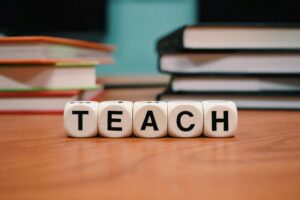On the Necessity for Forgiveness Education

Image by Pixabay, Pexels.com
When I first started to study forgiveness as a possible scientific topic, I was surprised to find no empirically-based publications on the topic of person-to-person forgiving. There were studies on apology and some non-empirical publications regarding forgiveness in therapy, but none examining forgiving with the use of statistics. In other words, psychological science, as supposedly centered on a helping profession, managed to avoid the scientific investigation of forgiving since the late 19th century. Such neglect was not due to the irrelevance of forgiving, but instead to psychological scientists failing to have sufficient insight to see the relevance of this topic for their profession.
All this has changed since the first empirically-based forgiveness publication appeared in 1989 (Enright, Santos, & Al-Mabuk, 1989).
Now there are thousands of research articles from a wide variety of scientists showing the relevance of forgiving for well-being after the person has suffered the negative effects of unjust treatment by others (Akhtar & Barlow, 2018; Enright & Fitzgibbons, 2024).
We now are faced with an analogous situation with regard to the implementation of forgiveness education. This is not an exact parallel situation with the empirical science of forgiving because much science on forgiveness education already has been done (Rapp et al., 2021). Instead, the issue centers on the implementation of forgiveness as an important component of elementary school, middle school, and high school education. The science of forgiveness education has been summarized by Rapp et al. (2021) with this conclusion: When 1,472 students across 10 countries have undergone forgiveness education, there is a statistically significant cause-and-effect association between engaging in forgiveness education and increasing a student’s level of forgiveness toward someone who acted unfairly as well as a reduction in anger in general. In other words, learning about forgiveness and its process can induce more forgiving in the human heart and reduce anger that could have been displaced onto others in the family or the classroom.
We should consider the need for universal forgiveness education by reflecting on this question: What is the main purpose of education? It seems that the answer is this: Education is supposed to help students prepare for adulthood by learning to read, do addition and subtraction so they can keep track of funds and other important inventories, and be cooperative members of society.
Yet, education almost never asks teachers to prepare students for the deep injustices that likely will visit them as adults. Here is one example I encountered: A 35-year-old woman was unexpectedly faced with her husband abandoning her and their two young children. She told me that she now has to find a job and continue raising the children alone as she confronts the rising anger and mourning that have befallen her. “I want to forgive,” she told me, “but I do not know how.”
What if this woman had forgiveness education as a child and adolescent? She now would be ready to forgive, to reduce her rising anger, to have more energy, and to raise her children with more focus. Forgiveness education would have prepared her for this.
Is learning how to read, to balance a checkbook, or to know the capital of Madagascar the only kind of preparation we should be giving children? Should we be expanding our vision of education, as we have with psychological science, to now make room for forgiveness education in the classroom?
It is time. It is more than time because it is long past time that forgiveness is seen as necessary for good preparation in being a thriving adult.
References
Akhtar, S. & Barlow, J. (2018). Forgiveness therapy for the promotion of mental well-being: A systematic review and meta-analysis. Trauma, Violence, & Abuse, 19(1), 107-122.
Enright, R.D. & Fitzgibbons, R.P. (2024). Forgiveness therapy. APA Books.
Enright, R. D., Santos, M., & Al-Mabuk, R. (1989). The adolescent as forgiver. Journal of Adolescence, 12, 95-110.
Rapp, H., Wang Xu, J., & Enright, R.D. (2022). A meta-analysis of forgiveness education interventions’ effects on forgiveness and anger in children and adolescents. Child Development, 93, 1249-1269.
![]()



